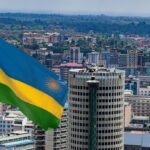Nairobi, Kenya – June 6, 2024
Major Investments in Renewable Energy Projects
Africa is witnessing a surge in investments in renewable energy projects, reflecting the continent’s commitment to sustainable development. In a landmark deal, South Africa has secured a $2 billion investment from international partners to expand its solar and wind energy infrastructure. This initiative aims to reduce the country’s reliance on coal and decrease carbon emissions, aligning with global climate goals.
Meanwhile, Morocco continues to lead in renewable energy, with its ambitious Noor Solar Project, one of the world’s largest concentrated solar power plants. The project is set to expand further, with new phases planned to increase its capacity by 500 megawatts. These developments are expected to create thousands of jobs and provide clean energy to millions of households.
Tech Boom: African Startups Attract Global Attention
The African tech sector is experiencing unprecedented growth, with startups attracting significant global attention and investment. Nigerian fintech giant, Flutterwave, has announced a successful Series D funding round, raising $250 million and pushing its valuation to over $3 billion. This funding will enable Flutterwave to expand its payment solutions across Africa and into new markets in Europe and Asia.
Kenya’s Silicon Savannah continues to thrive, with several startups receiving funding. Notably, edtech platform Eneza Education secured $15 million in funding to scale its operations and enhance its mobile learning solutions, which have already reached over 10 million students in rural areas.
Agriculture Sector Embraces Technological Advancements
Technological advancements are transforming Africa’s agriculture sector, making it more efficient and sustainable. In Ghana, agritech startup Farmerline has launched a new AI-powered platform that provides farmers with real-time weather updates, market prices, and farming advice. This platform aims to increase crop yields and reduce losses, benefiting over 200,000 farmers.
Additionally, Rwanda’s government has partnered with the International Fund for Agricultural Development (IFAD) to implement a $50 million project aimed at modernizing agriculture through the use of drones and satellite imagery for precision farming. This initiative is expected to boost agricultural productivity and ensure food security in the region.
Tourism Industry Shows Signs of Recovery
After being severely impacted by the COVID-19 pandemic, Africa’s tourism industry is showing signs of recovery. Countries like Kenya, Tanzania, and South Africa are reporting increased tourist arrivals, driven by the easing of travel restrictions and successful vaccination campaigns.
Kenya’s Masai Mara and South Africa’s Kruger National Park have seen a surge in bookings, with international tourists eager to experience Africa’s unique wildlife and landscapes. The tourism sector’s revival is crucial for economic recovery, providing employment and supporting local businesses.
Infrastructure Development: A Key Priority
Infrastructure development remains a top priority for African governments. Nigeria has launched a $20 billion infrastructure fund aimed at improving roads, bridges, and ports. This fund is expected to enhance connectivity, reduce transportation costs, and boost trade within the continent and with international partners.
In East Africa, the completion of the Standard Gauge Railway (SGR) extension from Nairobi to Naivasha in Kenya marks a significant milestone. The SGR is set to improve regional trade by providing a more efficient transportation route for goods between Kenya, Uganda, Rwanda, and South Sudan.


